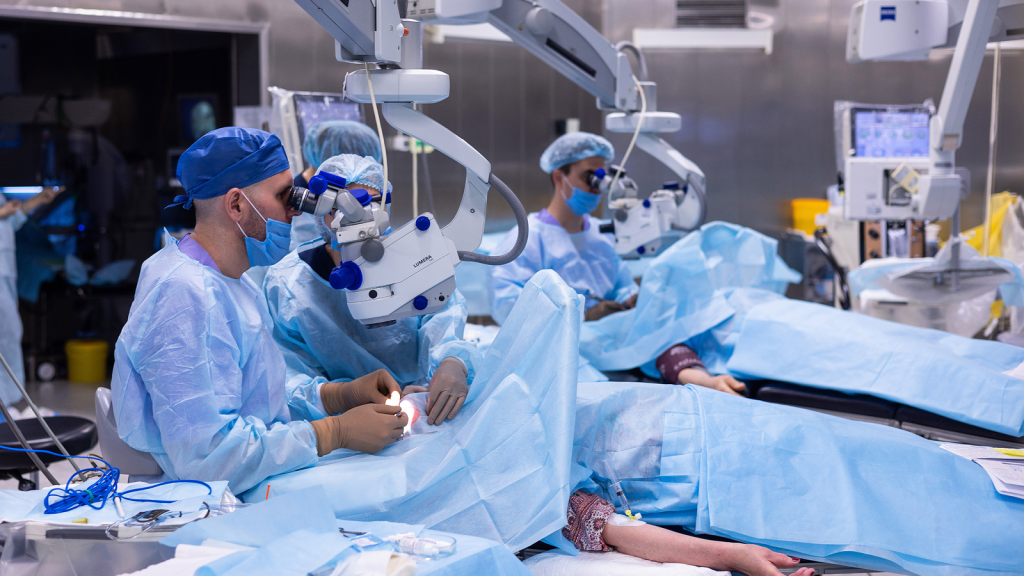- Physician or pediatrician appointment
- Otolaryngologist appointment
- Dentist appointment
- Electrocardiography
- Blood tests
- Clinical urine test
- HIV test
- Wassermann test
- Hepatitis B and С tests
- Chest photofluorography

If you are having a local anaesthetic, you can continue to eat and drink as normal and should take any medications as usual before your surgery, unless told otherwise by the nurse at your pre-assessment appointment. You will remain fully clothed during your surgery, but please wear a button-fastening top such as a shirt or blouse.
If you are having a general anaesthetic, you must have nothing to eat from 12.00 midnight on the morning of your surgery. You may drink clear water only (and no more than a maximum of 500mls) up to 6.00 am and nothing after that. You will need to change into an operating theatre gown prior to surgery, so you might want to bring a dressing gown with you. We also suggest that you bring a tooth brush and tooth paste to keep your mouth fresh while fasting.
It would do no harm to bathe and wash your hair the day before your surgery, as you might be unable to do so for the first few days after surgery.
Bring all of your medications and eye drops with you on the day of your surgery, as well as your spectacles or contact lenses with their cases and solutions, and a small toiletries bag if you would like to freshen up after your surgery.
Wear comfortable clothing and flat shoes.
Do not wear makeup or jewellery.
On the eve of surgery, you will be admitted to a single ward, where a nurse will give you a full explanation of what will happen during your stay. Your surgeon will also come to see you to discuss and sign your consent for surgery form.
The day after the admission you will be taken to operating theatre for your surgery. The surgeons decide in which order to operate on patients, but sometimes this has to change during the course of the morning or afternoon. Please bear with us if we are unable to be exact about what time you will be going to operating theatre. Most eye surgeries are relatively quick to perform and typically last between 15 and 90 minutes.
After your surgery you will go back to your ward to spend the rest of the day. The next morning you will undergo several tests to evaluate surgical outcomes and eliminate complications after your surgery. Then, you will be examined by your surgeon and given advice regarding further treatment and follow-up appointment.
After discharge you may go home by public transport, but it is essential that you have an adult escorting you home.
Contact Us
Moscow, 127486 Beskudnikovsky Boulevard, 59a
